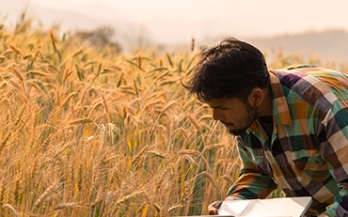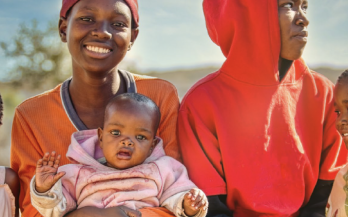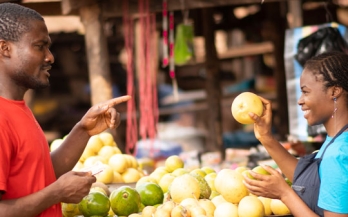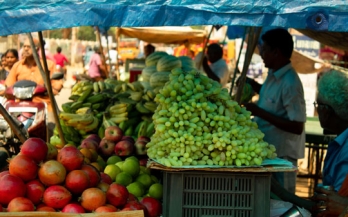


Story 1: Building food systems that are fit for purpose – five areas that need more attention
Read our first in the series on The Food Crisis: What's Happening, a collection of work on the current events and the impact we're seeing on a global scale. The Food Crisis is affecting everyone socially, economically and nutritionally. Jamie Morrison speaks about what areas need more attention and what actions need to be taken now.
Without data you’re just another person with an opinion
We at GAIN certainly believe data for food systems are important generally and for our own work and we invest in it. There are four recent reports that we have contributed to that I would like to draw your attention to.
1 in 2 children and 2 in 3 women worldwide affected by micronutrient deficiencies
Research published today in Lancet Global Health indicates that 1 in 2 preschool-aged children and 2 in 3 women of reproductive age worldwide are affected by vitamin and mineral deficiencies (often referred to as "hidden hunger").
New global estimates of micronutrient deficiencies
Online Webinar, Global
Join this panel discussion on Monday, 17 October 2022 to learn about the magnitude of micronutrient malnutrition worldwide and ways to accelerate progress through cost-effective and scalable actions.
New Global Estimates for Hidden Hunger
- 11/10/2022
The Lancet Global Health article is the first evidence-based global estimation of micronutrient (vitamin and minerals) deficiencies that systematically analyzed data on population-representative surveys from preschool-aged children and women of reproductive age.
1 in 2 worldwide face hidden hunger
1 in 2 people reading this article are likely experiencing hidden hunger, in other words a lack of essential vitamins and minerals. That matters because these "micronutrients" are the micro drivers of functions such as our immune systems which keep us safe and healthy.
What people on low incomes seek in nutritious foods
Food choice is complex. It involves psychological factors (like mood and preferences), sociocultural ones (like traditions and taboos), sensory appeal (like taste), health perceptions, ethical concerns (like animal welfare), social interactions (like peer influences), and socio-demographic aspects (like education).
The Nutritious Foods Financing Facility (N3F) - an innovative proof-of-concept partnership for impact investing in nutrition
In a recent report, Overcoming Multistakeholder Partnership Financing Hurdles to Accelerate the SDGs, the World Resources Institute (WRI) and partners discuss the funding challenges and lessons learned of commercially driven multi-stakeholder partnerships and share some recommendations on how to effectively drive positive impact on the Sustainable Development Goals (SDGs).
GAIN's Response to COVID-19 - Keeping Food Markets Working
- 20/09/2022
GAIN, Unilever, and the Sustainable Trade Initiative (IDH) saw an opportunity to improve the nutrition and health of farmers, workers, and their families in supply chains, whilst working to increase supplier and worker satisfaction, productivity and brand loyalty.